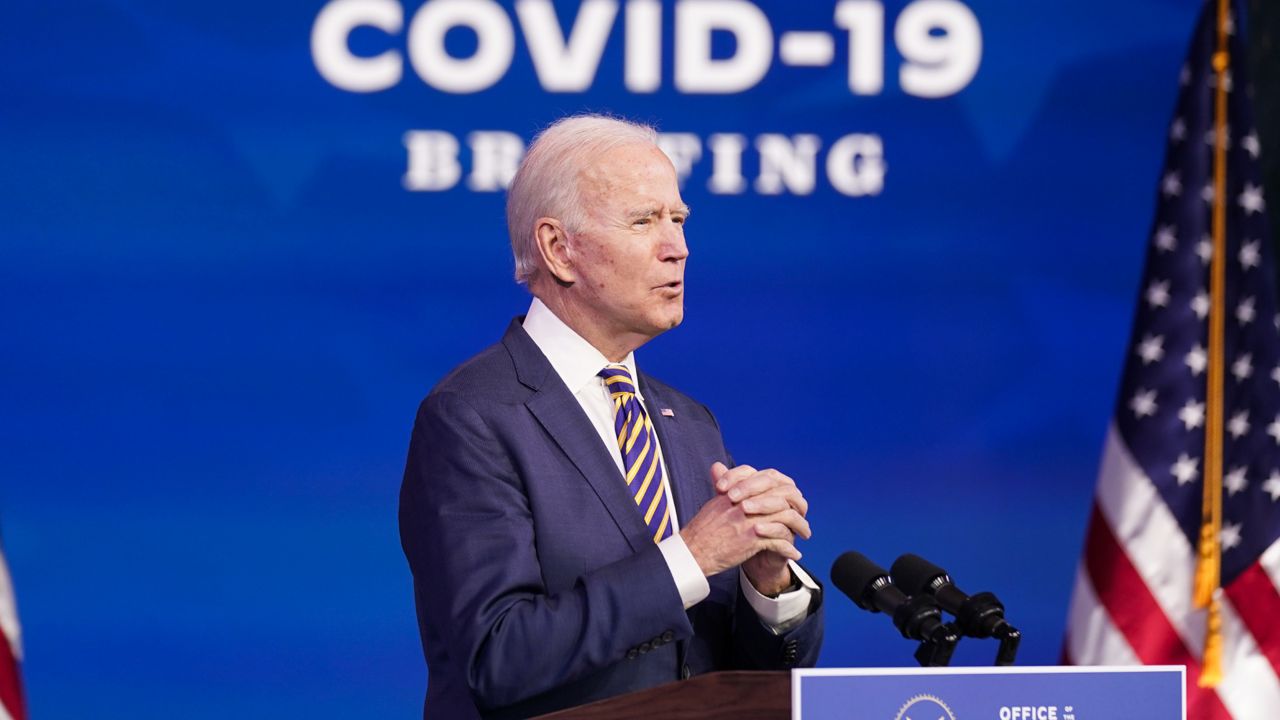President-elect Joe Biden on Tuesday offered perhaps his harshest critique of the Trump administration’s rollout of the COVID-19 vaccine to date, slamming the president for delays in shipments that have kept Americans from getting their shots.
Administration officials had long promised to vaccinate around 20 million people by the end of the year. But by Tuesday, with a little over 2 million people vaccinated, it became clear that the United States would not reach its lofty goal by Friday.
“As I long feared and warned, the effort to distribute and administer the vaccine is not progressing as it should,” Biden said Tuesday, adding: “At the pace the vaccination program is moving now, it would take years, not months, to vaccinate the American people.”
A collection of logistical missteps led to the botched rollout of the vaccine. Problems began to arise just a few days after the FDA granted emergency authorization to Pfizer-BioNTech’s COVID-19 vaccine on Dec. 11. The following week, several states said they were told to expect far fewer doses of the vaccine in its second week of distribution.
At the time, federal officials said Pfizer committed to provide 6.4 million doses of its vaccine in the first week after approval. But Operation Warp Speed had already planned to distribute only 2.9 million of those doses right away. Another 2.9 million were to be held at Pfizer’s warehouse to guarantee that individuals vaccinated the first week would be able to get their second shot later to make protection fully effective.
In mid-December, General Gustave Perna took personal responsibility for the miscommunication over the doses, saying he “had to lower the allocations to meet the releasable doses that were presented to me.”
But Biden placed the blame on the Trump administration as a whole, saying Tuesday their plan to distribute the vaccines “is falling behind, far behind.”
Biden went on to thank the “companies, doctors, scientists, researchers, and clinical trial participants, and Operation Warp Speed for developing the vaccines quickly,” before adding that his administration will “prepare a much more aggressive effort” to boost the pace of vaccinations.
In order to do so, Biden confirmed he will use his power as president to invoke the Defense Production Act to “order private industry to accelerate the making of materials needed for the vaccine.” The act is a Korean War-era law used to help the federal government for a range of emergencies including war, hurricanes and terrorism prevention.
The president-elect detailed several of his proposed efforts, several of which he previously announced as part of his “100-Day Challenge,” a series of goals Biden plans to achieve by his 100th day in office. These challenges include enforcing mask-wearing on all federal property; opening as many K-8 schools as possible; and administering 100 million COVID vaccine shots.
Citing high rates of vaccine hesitancy in minority communities, Biden announced his administration will “launch a massive public education campaign to increase vaccine acceptance.”
“We will do everything we can to show the vaccines are safe and critically important for one’s own health and that of their family and community,” he added.
All of this, Biden said, will require adequate funding from Congress.
“That is why I will propose a COVID action package early next year and challenge Congress to act on it quickly,” Biden said. “My ability to change the direction of the pandemic starts in three weeks.”
Biden concluded with a direct plea to the president, asking Trump to “clearly and unambiguously urge all Americans to take the vaccine once it’s available.” He recommended that the president get a COVID-19 vaccine on camera once his doctors deem it appropriate, saying it would instill a “degree of confidence” in some communities hesitant to be vaccinated.
On Tuesday morning, Vice President-elect Kamala Harris received her first dose of the vaccine on live television. Biden was vaccinated on television last week, as was Vice President Mike Pence in a separate televised event.
The Associated Press contributed to this report.









